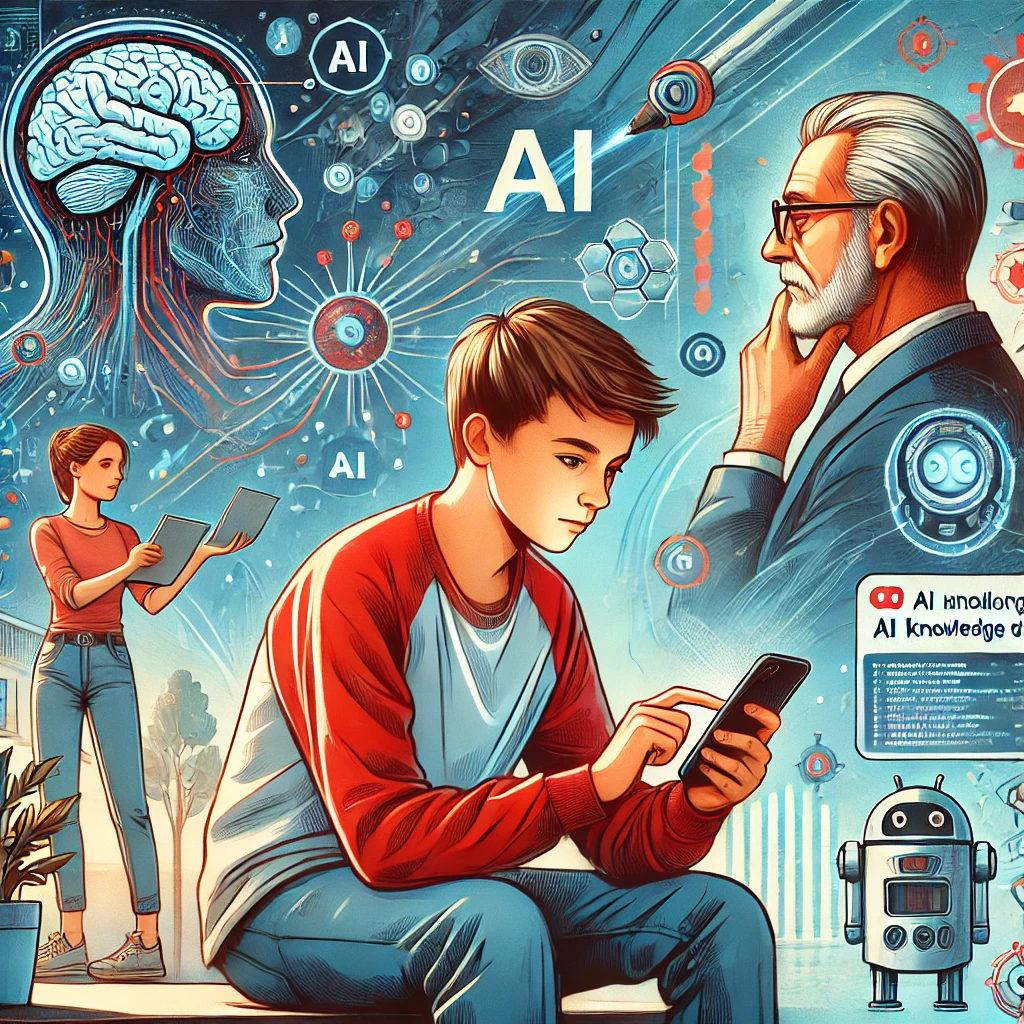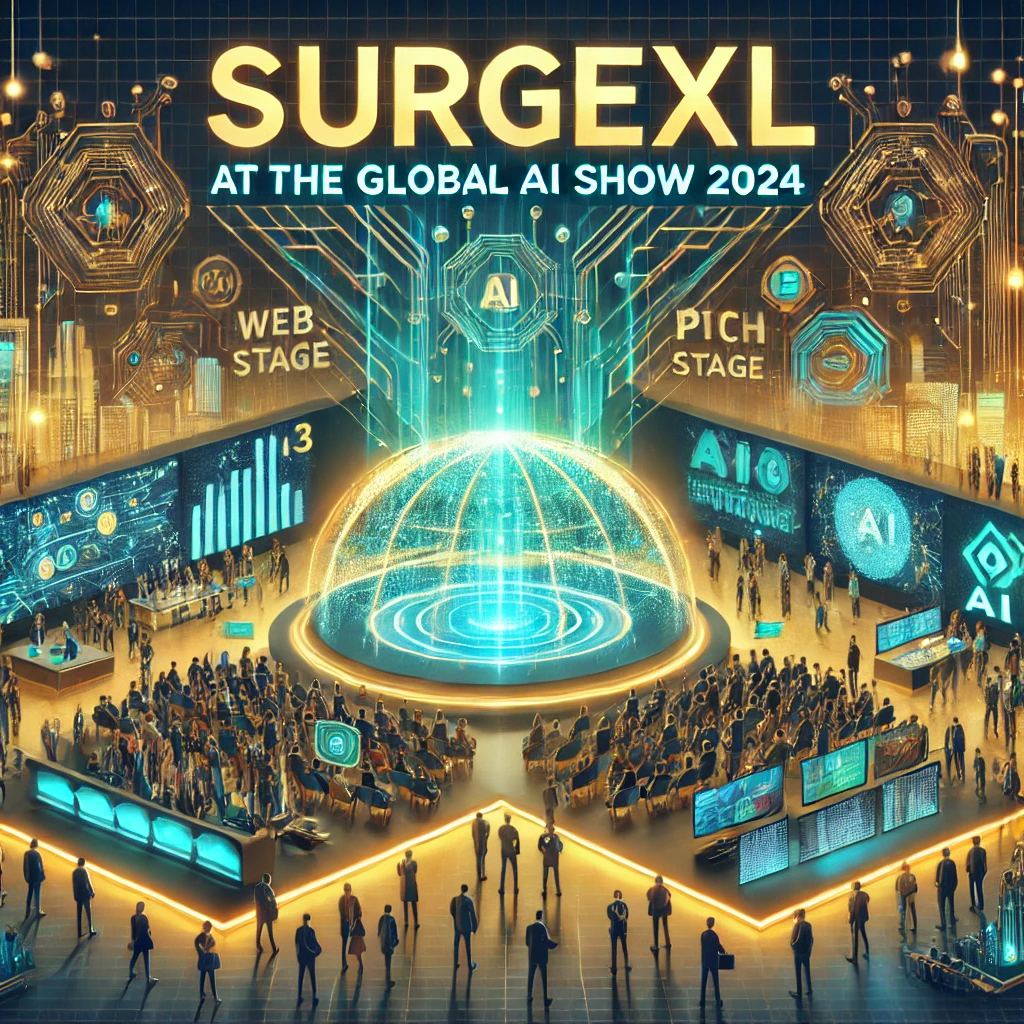As artificial intelligence (AI) continues to permeate everyday life, a knowledge gap is emerging between generations—particularly between parents and teenagers. While today’s teens are growing up with AI-powered technologies embedded in everything from social media to smart home devices, many parents are finding it difficult to keep pace with the rapid advancements and understand the implications of these tools.
This “parent-teen knowledge gap” around AI is creating challenges in communication, guidance, and trust between generations. Parents, who might struggle to fully grasp the technology, often worry about its impact on their children’s privacy, mental health, and future. Meanwhile, teenagers, who are generally more adept at using AI-driven platforms, may not recognize the potential risks or long-term effects of their digital habits.
Teenagers: Tech-Savvy but Lacking Awareness
Teenagers today are digital natives, fluent in navigating AI-powered platforms like TikTok, Instagram, and YouTube. They are accustomed to recommendation algorithms that shape their online experiences, voice assistants like Siri or Alexa, and AI-enhanced video games. But while they may know how to use these tools, their understanding of how AI works—its limitations, biases, and potential consequences—can be limited.
For instance, many teens may not fully comprehend how social media algorithms collect their data to serve personalized content, or how AI can influence their behaviors and even self-esteem. Without a broader understanding of these AI systems, they might overlook critical issues such as data privacy, online safety, and the long-term impact of AI-driven content on their worldviews and mental health.
Parents: Concerned but Uninformed
On the other hand, many parents are aware of the growing influence of AI but may lack the technical knowledge to understand how these systems work or to effectively guide their children in using them safely. They are often concerned about the potential risks associated with AI, such as online addiction, exposure to inappropriate content, and the erosion of critical thinking due to over-reliance on AI-generated recommendations.
For many parents, the challenge lies in striking a balance between allowing their teenagers to engage with AI-driven technologies while setting boundaries and encouraging healthy tech habits. However, without a deep understanding of AI, parents may feel ill-equipped to have meaningful discussions with their children about the technology and its potential risks.
Bridging the Knowledge Gap
Closing the parent-teen knowledge gap around AI is crucial for fostering healthy digital habits and ensuring that teens grow up with a well-rounded understanding of the technology shaping their world. Here are a few ways to bridge the divide:
- Encourage Open Conversations: Parents and teens should regularly discuss AI and technology use. This can include talking about the algorithms behind social media platforms, the privacy risks of sharing personal data, and the ways AI can shape perceptions. By fostering open communication, parents can gain insights into their teens’ digital lives and provide guidance without being overbearing.
- Learn Together: Parents don’t need to be experts in AI to engage with their teens about technology. Families can explore AI-related topics together, whether through online courses, documentaries, or articles. This shared learning experience can help demystify AI and provide both parents and teens with a better understanding of its potential and pitfalls.
- Focus on Digital Literacy: Both parents and teens can benefit from improving their digital literacy, which goes beyond knowing how to use AI-powered apps. It involves understanding the ethical implications of AI, the importance of data privacy, and how to critically evaluate online content. Schools and community programs can play a key role in promoting digital literacy for all ages.
- Establish Healthy Tech Habits: Parents can model healthy tech habits by setting boundaries for AI use, such as limiting screen time, encouraging breaks from devices, and promoting face-to-face interactions. Setting clear guidelines about tech usage while involving teens in these decisions can help them develop responsible, balanced relationships with AI.
The Future of AI and Family Dynamics
As AI continues to evolve, the knowledge gap between parents and teens is likely to persist unless both generations make efforts to stay informed. AI will only become more integrated into daily life, from education and entertainment to future job opportunities. Preparing teens to navigate this AI-driven future requires equipping them with the knowledge to use these tools critically and responsibly.
In conclusion, bridging the parent-teen knowledge gap around AI is essential for fostering trust, enhancing digital literacy, and ensuring that both generations can make informed decisions about their use of technology. By learning together and encouraging open dialogue, parents and teens can better understand the transformative potential of AI—and navigate its complexities in a rapidly changing digital landscape.





